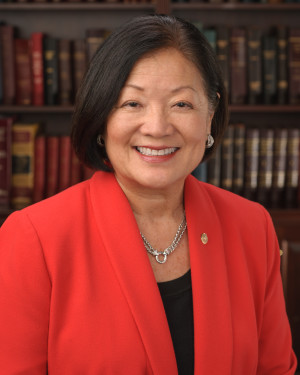Parole visas okayed for PH families of Filipino WWII vets in U.S.

Senator Mazie Hirono (Dem.-Hawaii) was instrumental in pushing for the approval of a family reunification parole visa program for Filipino veterans of WWII. US CONGRESS
WASHINGTON, DC – Family members of Filipino World War II veterans can now apply for parole visas and reunite with parents here in the U.S., the Department of Homeland Security announced May 6.
“Yesterday’s announcement from the Department of Homeland Security is very heartening,” says NaFFAA National Chair JT Mallonga.
“Our courageous heroes, who have waited for up to 20 years, deserve the opportunity to be with their children. They must not suffer the pain of separation in the twilight of their years.”
Last year, President Obama used his executive authority by establishing a parole visa program to reunite Filipino WWII veterans with their loved ones.
Long visa backlogs, which have separated family members for decades, prompted Obama to order an interagency task force to look into the matter.
But what spurred the president’s action was a report issued by Asian Americans Advancing Justice (AAJC) calling on him to grant parole for children of Filipino War World II veterans.
The Department of Homeland Security, which will administer this program through the U.S. Citizenship and Immigration Service (USCIS), finally issued policy guidelines spelling out in detail who are eligible to apply. DHS will start accepting applications in June.
“We thank Sen. Mazie Hirono for pushing the Obama Administration to quickly implement this program and make children eligible for expedited consideration to come to the United States,” adds Mallonga.
“We also appreciate the hard work of advocacy groups, like AAJC, the Filipino Veterans Equity Center (FVEC) and the Filipinos for Justice. Their diligence and persistence made it possible to move this policy forward so our veterans and their families can be with each other without further delay.”
More information on DHS guidelines may be found here:
https://www.federalregister.gov/articles/2016/05/09/2016-10750/filipino-world-war-ii-veterans-parole-policy